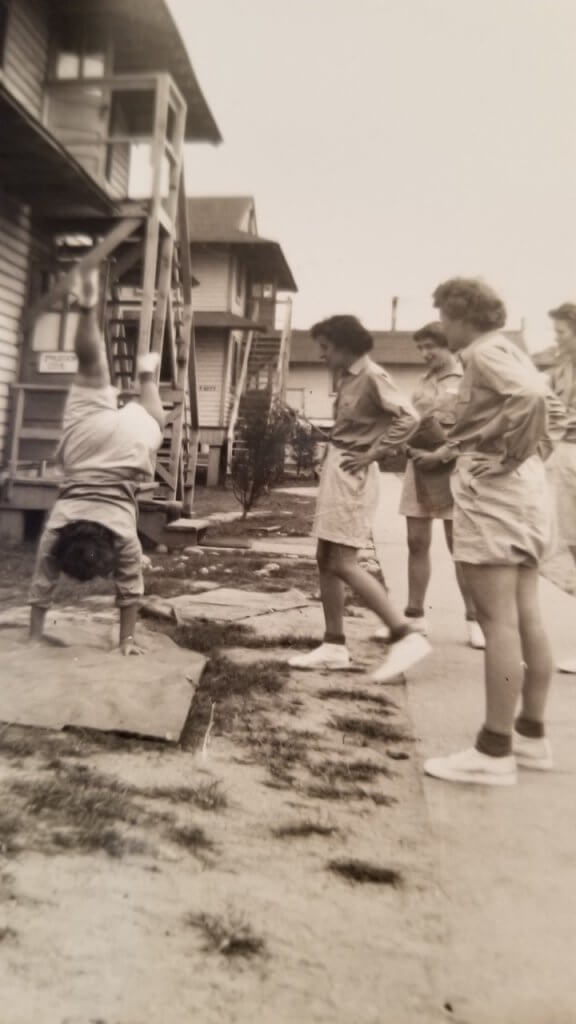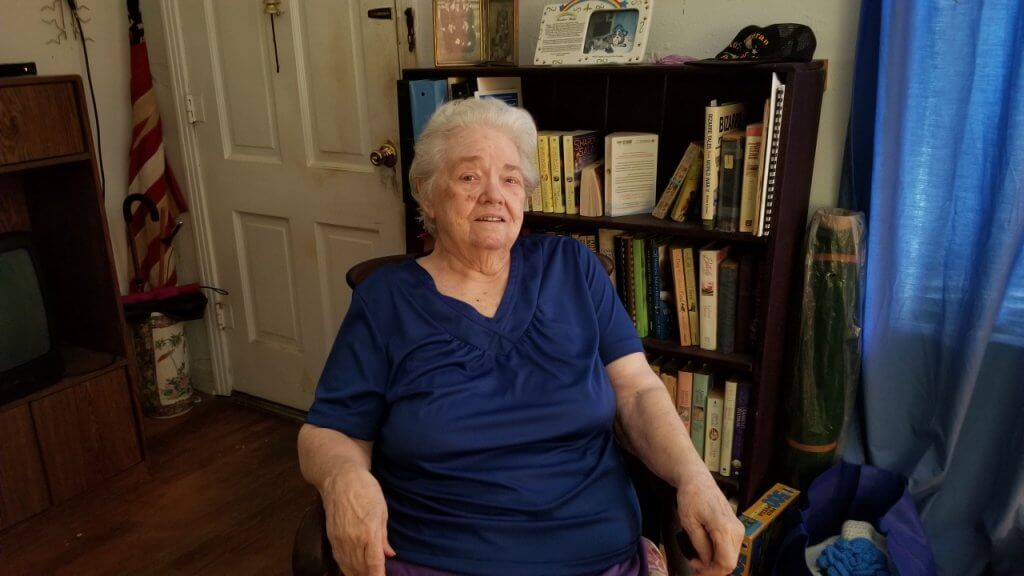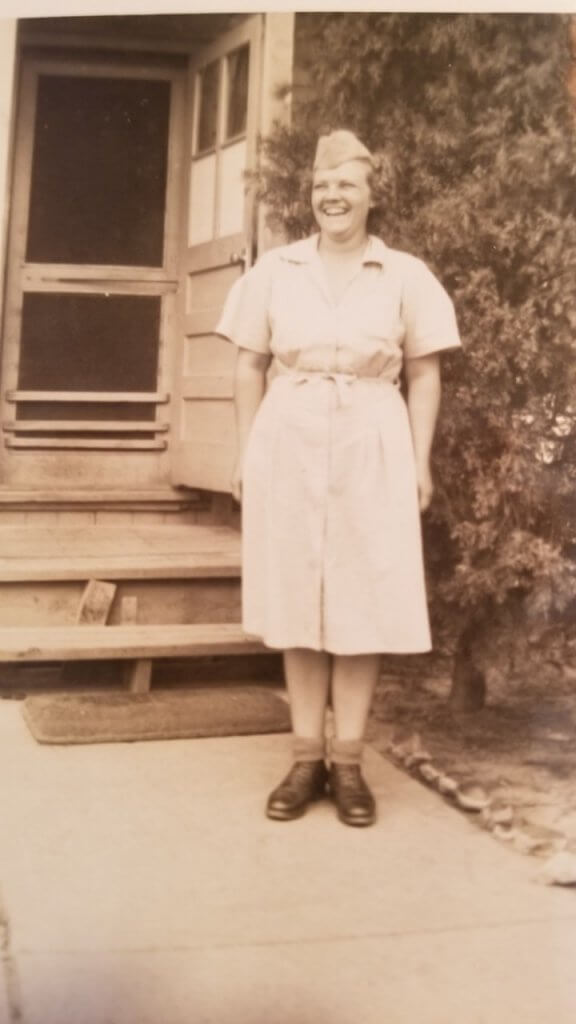When applying for Korean War veterans’ benefits, military records are important. Mickey LaDuke learned the Army’s record-keeping precision when she enlisted and her name didn’t match her birth certificate.
When Mickey LaDuke entered the world in a Hubbard, TX, farmhouse in 1928, Mom and Dad couldn’t agree on a name. “Mom said she knew my dad was disappointed because I wasn’t a boy,” recalled LaDuke, an Army veteran and client of Veterans Home Care’s VetAssist Program. “My dad said, ‘nope, she’s cooter than any boy I’ve ever seen.’ Her father wanted to name her Elsie Lucille. Mother said there were already three Elsies and two Lucilles in the extended family, and that was enough. She favored “Michaela.” Neither parent would budge. The doctor shrugged and just listed “female” on the birth certificate.
“My mother always called me Mickey, and Dad called me Cooter, unless he was mad. Then it was ‘Elsie Lucille.’”
“Mickey” is the name that stuck. “Born the same year as Mickey Mouse,” the Texan says. The birth certificate was never a problem until her Army enlistment. “My mother took me to a notary public and had to swear I really had a name,” she said with a smile.
Korean War veterans’ benefits enable LaDuke

These days, Mickey LaDuke, who turns 92 in late July, still lives independently in Waco, TX, with the help of VetAssist caregivers. She has a TV but watches only the noon news. It doesn’t get used on weekends. She would prefer to read, as did her mom. “My mother said if didn’t matter if it was a shoot-em-up or a romance, she’d learn something reading it.” Mickey’s own tastes learn toward history and westerns. But online? Forget it!
“I don’t have a computer and I don’t want one,” she said. “I’m a ’28 model. When computers go down, everything goes down.”
Thanks to the Local Area Agency on Aging
Debbie Jones at the Area Agency on Aging — the Heart of Texas told Mickey about the Aid and Attendance benefit and referred her to the VetAssist Program in 2015. VetAssist helped Mickey file her claim and contacted the Visiting Angels in Waco, a VetAssist network provider who now helps keep Mickey independent. Mrs. LaDuke has been utilizing VetAssist® services since then.
“I was shocked to find about it,” she said. “I didn’t know anything about the program or that I was entitled to the benefit because I had served during the Korean outbreak. My Angels change the bed, help me dress, do light housework, cooking – whatever I need them to do. … My muscles aren’t what they used to be and I need the help. I couldn’t afford it without the VA benefits.”
What is VetAssist?
The VetAssist® Program assists eligible veterans or their surviving spouses with a benefit called “Aid and Attendance” from the Department of Veterans Affairs (VA). Veterans and/or their surviving spouses receive home care and assistance with activities of daily living, thanks to an interest-free loan covering expenses while their application is in the approval process. In short, the VetAssist Program takes care of the men and women who protected our country during wartime.
Coincidental July Celebrations: A birthday and Korean War Veterans Armistice Day
Two days after Mickey’s birthday, the United States recognizes National Korean War Veterans Armistice Day on July 27. Unfortunately, many Korean War veterans who may be celebrating the new armistice day aren’t aware they’ve earned any Korean War veterans benefits. Many wartime veterans count themselves out because they don’t have combat duty, overseas service or service-related injuries. Fortunately, the team at Visiting Angels in Waco referred Mickey to the VetAssist Program.
Fighting disease from polio to Covid-19
While in the Army from 1949-52, Mickey was on the frontlines in battles against diseases. COVID-19, she’ll grant you, has created the biggest stir, but she’s not hitting the panic button. That’s not her style. She wears masks to doctors’ appointments and takes other preventive measures.
“I don’t worry about catching it myself,” she said. “But it makes me angry sometimes when I see children out playing together with no precautions. How can parents say they love their kids if they expose them to the virus?”
Disease was a constant during her military career. After basic training, she was sent to Fort Sam Houston in San Antonio as a medical technician. “Bedpan commando,” she says with a laugh.
The polio epidemic was the scourge of the country then. Mickey worked in the pediatrics ward, which housed infected children who were isolated in quarantine for long periods of time.
“Parents weren’t allowed to visit much, so I would take my mask off to give those babies hugs and kisses,” she said. “I got yelled at a lot for not having my mask up, but I figured they needed some cuddling. And I figured God wouldn’t let me catch anything because the little ones needed me.”
Polio wasn’t the only infectious menace preying on Americans. Tuberculosis was a threat, and Mickey’s husband contracted it. He was sent to Fitzsimons Army Hospital in Denver, and she transferred along with him. Many of the patients she helped care for were soldiers who contracted TB fighting in Korea.
Mickey worked in the wards, putting on a fresh gown and disinfecting her hands every time she went into a different room. “I never worried about catching it,” she said. “If I got it, I got it. I didn’t panic about it.”
Front row to history and another July milestone – military desegregation
Mickey LaDuke also deserves a footnote in history. At Fort Lee in Virginia, she can claim to be a member of the Army’s last all-white company. “I was in the last company that was segregated,” she said. “A company then was either all white or all black. Soon after, Truman’s executive order went into effect, and military stopped segregation.”
Racial politics have never been high on Mickey’s list of concerns.
“I was raised by my mother not to be prejudiced,” she said. “If you cut yourself, you bleed the same color whether you’re yellow, red, black or white.”
Some issues can’t be viewed simply in, well, black and white. Her mom’s last name was Bonner, and Mickey says there are lots of Bonners in central Texas, black and white, all related.
“I have Scottish ancestry,” she says. “My great grandfather was a slave owner in Georgia. He became a captain in the army and freed his slaves before joining. … After the war, he moved to Alabama. His former slaves wanted to come with him. He said he couldn’t pay them, but they could come with him and he would help them find jobs, and he did.”
Overcoming, enduring, thriving
LaDuke remains upbeat and cheerful, despite experiencing a number of heartbreaks. Perhaps more than her share. Mickey was pregnant 13 times — once with twins — but lost all of them. The first baby died after 30 minutes — “I should have had a C section,” she says. The other pregnancies ended in miscarriages.
Undaunted, Mickey adopted a daughter, Eve Marie, and now has three grandchildren and two great grandchildren scattered from coast to coast.
Her contact with family is limited to phone calls, but grandkids of friends pay visits.
“They call me Grammy Mickey,” she says with a grin.

Other nuggets from Mickey LaDuke
• “I joined the army so Uncle Sam could pay for my schooling. I retired at 68 from the VA Regional office and was still taking college classes. I never got a degree but I got a good education. If a class looked interesting, I took it.”
• “You can spoil your grandkids all you want!”
• Mother said, “never wear drab colors. When you are older, you’ll be drab enough..”
• “Women have no place on front line in war. But if we were there, we’d get it over. Men let it go on and on. They’ve been fighting in the Iraq area since the beginning of time. Our guys don’t need to be over there; we’re not going to stop them from fighting. They need to come on home. We’ve lost too many.”

The VetAssist® Program is ideal for those who want to use their VA benefits for in-home care or adult day care. If you or your loved one is a wartime veteran, check your eligibility for VetAssist and VA Aid and Attendance online. Or send and email to referrals@veteranshomecare.com or call toll free 888-314-6075.














